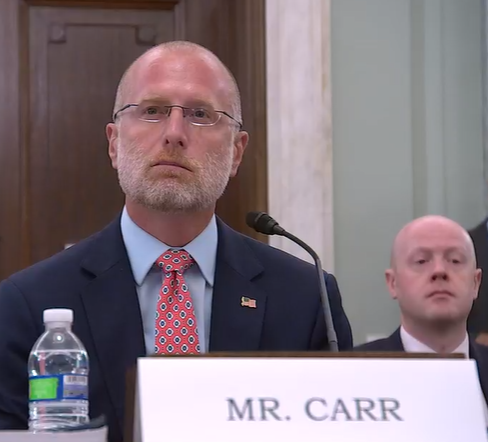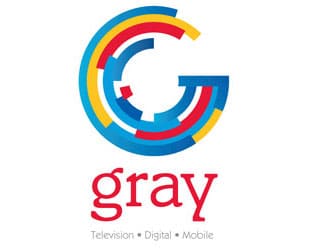On May 22, the Chairwoman of the FCC spread the word that she’s shared draft legislation with her fellow Commissioners that, if adopted, would look into whether the FCC should require disclosure when there is AI-generated content in political ads on broadcast radio and television stations.
While Jessica Rosenworcel said she had “the subsequent support of her colleagues,” the leading Republican on the FCC made it known that he will fiercely oppose her plan.
Brendan Carr, in a lengthy statement, said he opposes a “new effort to regulate political speech” ahead of a contentious 2024 U.S. presidential election.
Why? “This effort echoes a DNC-backed initiative at the Federal Election Commission to impose new regulations on AI-generated political speech before voters hit the ballot boxes this fall,” Carr explained, pointing to a petition by Public Citizen to the FEC filed in July 2023 and the subsequent October 2023 endorsement of the filing by the Democratic National Committee. “The FCC’s attempt to fundamentally alter the rules of the road for political speech just a short time before a national election is as misguided as it is unlawful.”
If adopted, the proposal introduced by Rosenworcel “aims to increase transparency” by:
- Seeking comment on whether to require an on-air disclosure and written disclosure in broadcasters’ political files when there is AI-generated content in political ads
- Proposing to apply the disclosure rules to both candidate and issue advertisements
- Requesting comment on a specific definition of AI-generated content
- Proposing to apply the disclosure requirements to broadcasters and entities that engage in origination programming, including cable operators, satellite TV and radio providers and section 325(c) permittees
The Commission was careful to note that the draft NPRM does not propose any prohibition of AI-generated content — only the disclosure of any such content within political ads. That’s still an overreach for Carr.
“There is no doubt that the increase in AI-generated political content presents complex questions, and there is bipartisan concern about the potential for misuse,” Carr said. “But none of this vests the FCC with the authority it claims here. Indeed, the Federal Election Commission is actively considering these types of issues, and legislators in Congress are as well. But Congress has not given the FCC the type of freewheeling authority over these issues that would be necessary to turn this plan into law.”
LACK OF STREAMING AUTHORITY
The biggest problem Carr has with the Rosenworcel plan is that it will only cover one delivery vehicle for political advertisements, as the FCC does not have authority over streaming media.
“AI-generated political ads that run on broadcast TV will come with a government-mandated disclaimer but the exact same or similar ad that runs on a streaming service or social media site will not?,” he asks. “Consumers don’t think about the content they
consume through the lens of regulatory silos. They just view content on screens. Will they conclude that the absence of a government warning on an online ad means that the content must be real? I don’t see how this type of conflicting patchwork could end well. Unlike Congress, the FCC cannot adopt uniform rules.”
Carr continues, “Applying new regulations to candidate ads and issue ads but not to other forms of political speech just means that the government will be favoring one set of
speakers over another. And applying new regulations on the broadcasters the FCC regulates but not on their largely unregulated online competitors only exacerbates regulatory asymmetries. All of this confirms that the FCC is not the right entity to consider these issues.”
Lastly, Carr said he is also concerned that the Rosenworcel proposal “is part and parcel of a broader effort to control political speech.” He wonders, “Is the government really worried that voters will find these ads misleading in the absence of a regulator’s guiding hand? Or is the government worried that voters might find these ads effective? Imagine going
after President Lyndon Johnson for his 1964 ‘Daisy’ ad because voters might think that the child actually died in a nuclear strike. The type of government intervention envisioned by this plan would only do more harm than good.”




